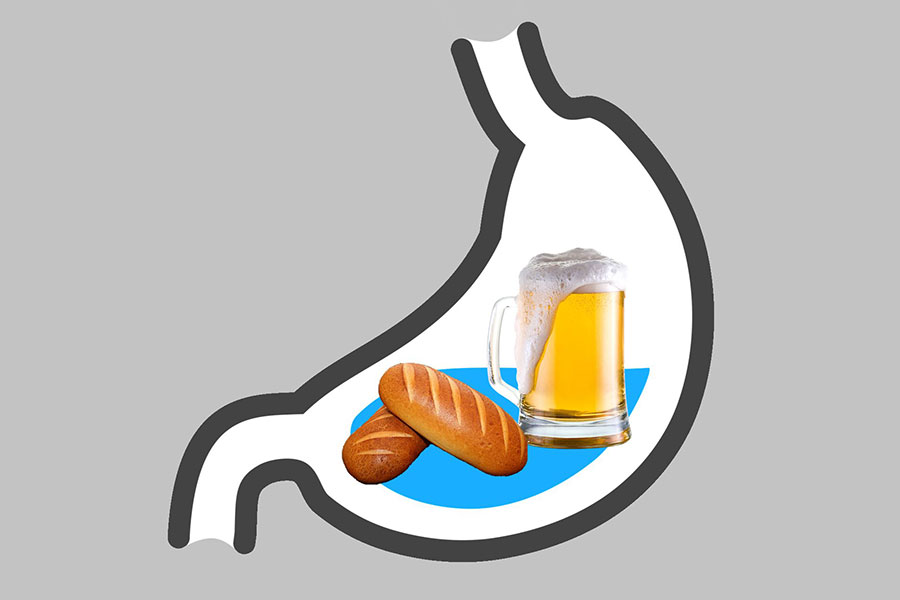What is ABS?
Auto brewery syndrome is a rare condition in which the gastrointestinal system produces ethanol through fermentation by fungi or bacteria in the gut. Normal digestion does produce some ethanol, but this process can become pathologic, producing so much that blood alcohol levels are detected. People with ABS can exhibit signs and symptoms of intoxication without having had any alcohol to drink. These individuals often have diets high in sugar and carbohydrates. ABS is more common in people with other medical issues such as diabetes, obesity, and GI disorders such as Crohn’s disease or short-bowel syndrome, however it can be present in healthy people as well. ABS affects children as well as adults and is likely underdiagnosed.
What are the symptoms?
Symptoms of ABS are the same as drunkenness and/or a hangover. These include:
- Flushed skin
- Dizziness
- Disorientation
- Headache
- Nausea and vomiting
- Dehydration
- Dry mouth
- Belching
- Fatigue
- Memory and concentration problems
- Mood changes
How is ABS diagnosed?
ABS is an uncommon disorder, but when it is suspected, a carbohydrate challenge test and endoscopy to obtain intestinal secretions is one method. The secretions can then be tested for fungal growth.
How is ABS treated?
A person presenting with a high blood alcohol level should be treated accordingly and stabilized. Gastrointestinal cultures should be done to determine the yeast or bacteria that is potentially causing the ABS, then appropriate prescription drug therapy should be initiated. Diet modification, like a high-protein, low-carbohydrate diet is essential to reduce the incidence of ABS. Probiotics have also been used as a treatment for ABS, but additional studies are needed to assess their effectiveness.
What are the implications for criminal cases?
A client with a DUI arrest who denies alcohol consumption should be suspected of having ABS, particularly if they have comorbidities such as diabetes, obesity, or GI disorders. In addition, if a client has a history of neurological symptoms, loss of coordination, and mood changes, ABS should be considered.
References
Malik, F., Wickremesinghe, P., & Saverimuttu, J. (2019). Case report and literature review of atuo-brewery syndrome; probably an underdiagnosed medical condition. BMJ Open Gastroenterology, 6(1), e000325.
Painter, K., Cordell, B., & Sticco, K. (2019, January). Auto-brewery Syndrome (Gut Fermentation). Retrieved from NCBI Bookshelf. A service of the National Library of Medicine, National Institutes of Health: https://www.ncbi.nlm.nih.gov/books/NBK513346/?report=printable
Don’t miss our newsletter! Topics covered are:
Assault / Trauma
DUI / General Medical
Child & Elder Abuse / Neglect
Mental Health / Toxicology
Sign up here.











